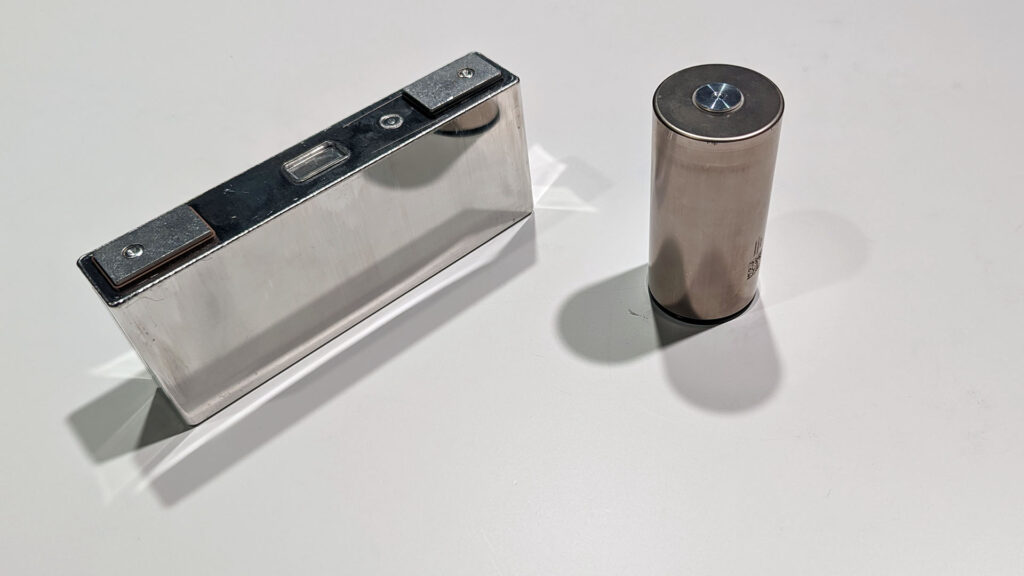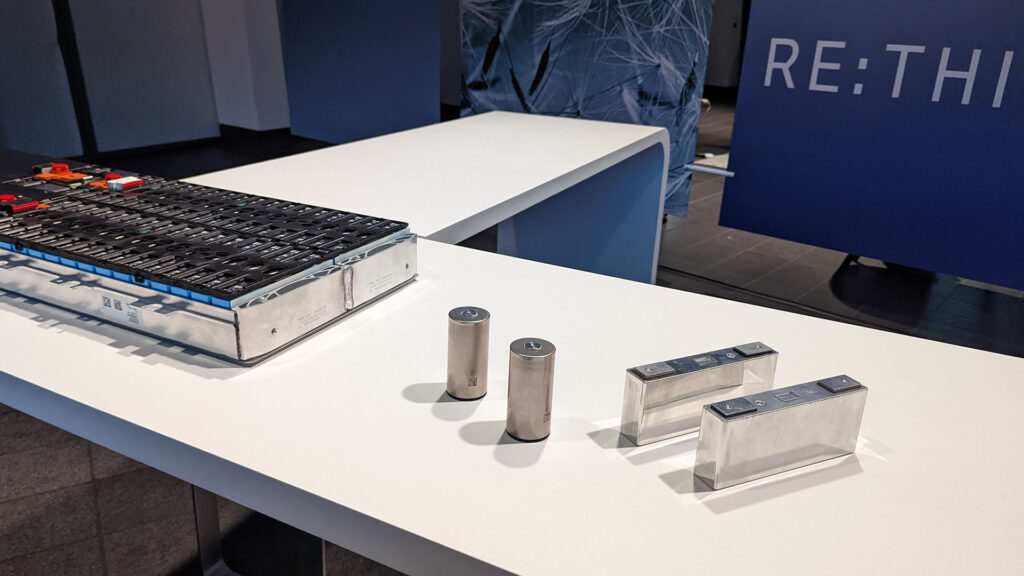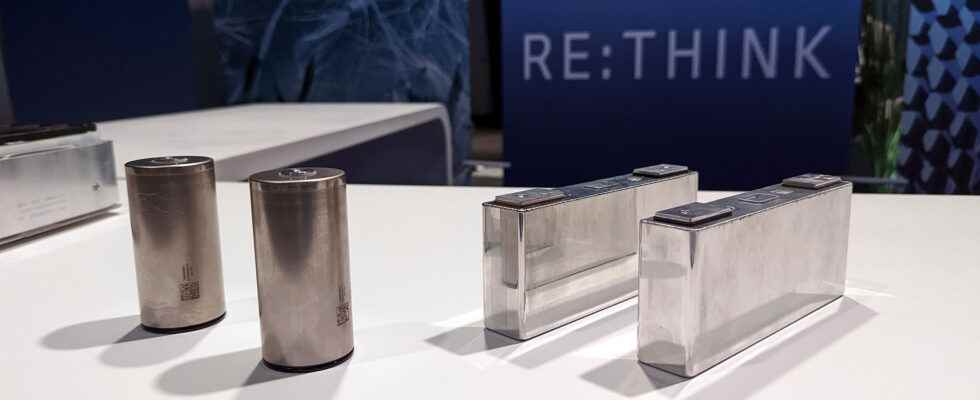The next generation of BMW batteries (GEN6) will change shape, adopting cylindrical batteries instead of the prismatic cells currently used.
BMW is already preparing the 6th generation of its batteries, we learned on September 9, 2022. The German brand is taking a 180° turn and moving from blocks to cylindrical cells. The group plans the arrival of these new batteries in BMW models from 2025. We were able to observe the two generations of battery cells, we share with you what we have learned.
Flat cells or round batteries: battery manufacturers each boast of having the best response to developments in electric mobility. Changing the type of battery is in any case not neutral in the strategy of the BMW group. The manufacturer has already listed the advantages of this new format.
What do we know about the new GEN6 cells?
These new cells will be developed in 2 sizes. In both cases, the width remains 46 mm, but the height may be 95 or 120 mm, depending on the needs of the installation in the battery pack.
The sixth-generation battery technology will use lithium iron phosphate (LFP) cathodes, as is the case with entry-level Teslas and many other recent models.
For those who love chemistry stories, the takeaway is that the nickel content of round cells (GEN6) is higher on the cathode side, while the cobalt content is reduced by 50% compared to cells (GEN5). On the anode side, the silicon content will be increased. This new generation will also save up to 40% copper for a battery pack.
BMW is also working in parallel on solid-state batteries (ASSB), for which the group hopes to obtain progress, in order to present a concept equipped with this new battery solution from 2025.
What is the interest of these batteries for BMW?
For this new generation of battery, BMW considers that cylindrical cells will bring several benefits:
- Better integration,
- Better energy density,
- A more sustainable solution,
- And more security.

Expectations are high for BMW, which is already announcing that these batteries will reduce charging time by 30% by 10 to 80%. They can be coupled to an 800 V platform, which allows this increase in charging power, which is not the case with the current generation. Thanks to a higher density, up to 30% more autonomy is expected on certain models, for the same battery size.
BMW is very actively committed to reducing its CO2 impact, and this new generation of battery is part of this approach. It will reduce the emissions associated with the brand’s production by 60%. The group has therefore chosen to use an increasingly large proportion of recycled materials in its battery chemistry. The manufacturer will notably reuse Lithium, Nickel and Cobalt from recycling. Finally, the brand has made commitments on the origin of raw materials with regard to the share of new extractions. Cobalt and lithium will come from certified mines to avoid bad practices related to mining operations and their workers.
BMW chose this cylindrical cell solution also for its safety. This new generation must limit the risks of thermal runaways of the battery pack. On the other hand, the manufacturer will no longer be able to ensure the replacement of a defective cell, which it could do on other generations of battery.

The sinews of war is also the financial aspect. These new cells will make it possible to lower the cost of batteries by 50%. For example, the battery pack of a BMW i4 represents up to 40% of the cost of the vehicle.
New factories to manufacture battery cells
To manufacture these batteries (GEN6), the BMW group will rely on two partners, CATL and EVE Energy. They were entrusted with the construction of battery cell factories. Two gigafactories will be established in China and two in Europe. Each of the battery cell factories will have a total annual capacity of up to 20 GWh.
BMW also plans to set up two battery factories on the North American continent to supply its local production, but no contract has yet been finalized.
